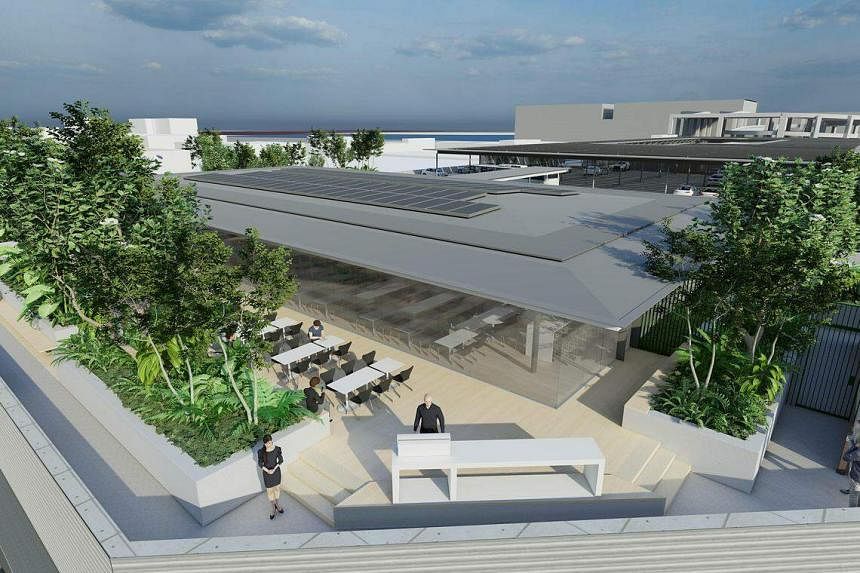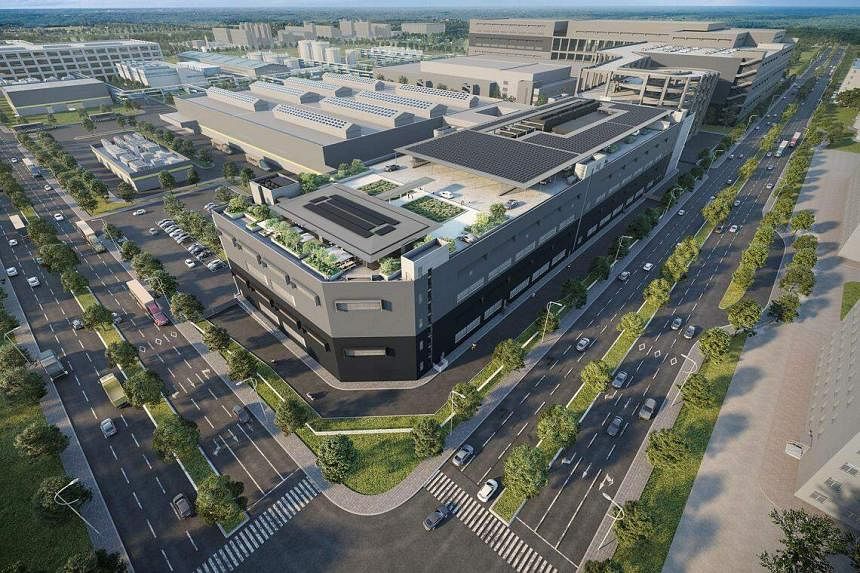SINGAPORE – Consumer electronics giant Dyson will open a factory in Tuas to manufacture next-generation batteries for the company’s new products, describing the move as “the most significant investment in advanced manufacturing in the firm’s history”.
The new facility, which will span 247,000 sq ft, or the equivalent of 53 basketball courts, will be completed this year and is expected to be fully operational by 2025.
It is part of a broader move to ramp up software, artificial intelligence (AI) and product development globally that will see Dyson double its manufacturing footprint worldwide.
The Singapore-headquartered company will also invest in new sites in Britain and the Philippines that focus on research and development (R&D), among other capabilities.
The latest developments are part of an ongoing £2.75 billion (S$4.6 billion) five-year investment plan, said Dyson on Wednesday.
Founder James Dyson said: “Software, connectivity, AI and proprietary new technology batteries will power the next generation of Dyson technology.
“Just like our long-term investments in pioneering digital electric motor technology, Dyson’s next-generation batteries will drive a major revolution in the performance and sustainability of Dyson’s machines.”
While the company did not disclose the investment value of Singapore’s new battery plant, a spokesman said: “This investment is part of our ongoing $1.5 billion commitment to our future in Singapore.”
The high-tech plant will produce proprietary batteries that will be smaller, lighter, more sustainable and more energy-dense than the ones available today, said the spokesman. Dyson started developing in-house batteries more than a decade ago.
“Our advanced manufacturing expansion in Singapore will enable Dyson to bring entirely new battery technology to market,” said Dyson chief executive Roland Krueger, who also gave a nod to Singapore’s highly skilled workforce of engineers and scientists, along with a supportive government.
Dyson currently operates an advanced manufacturing facility in western Singapore that produces its motors. Plans for the existing Singapore advanced manufacturing facility remain unchanged, the spokesman said.

Apart from Singapore, Dyson will also be making a £166 million investment in the Philippines and another £100 million in Britain for new R&D campuses, or what it calls “technology centres”.
The Philippines site is expected to be operational by the first half of 2024 and would bring together its research, development and advanced motor manufacturing capabilities under one roof. It is located in Santo Tomas, Batangas, some 60km south of capital Manila.
As part of this investment, Dyson aims to recruit another 400 engineers in the Philippines, along with more than 50 graduate engineers, who are expected to join the team later in 2023.
They will focus their research on software, AI, robotics, fluid dynamics and hardware electronics, areas of study that are critical to developing the company’s products.
In Britain, the new Bristol centre will be home to software and AI engineers working on a pipeline of products that stretches a decade into the future, as well as the commercial and e-commerce teams for Britain and Ireland. This follows Dyson’s investment in 2022 in a centre in Wiltshire that is focused on wearables and robotics.
The company said its commitment to Bristol reflects the city’s position as an international hub for software and digital skills, and will drive recruitment of the best qualified people from both Britain and abroad.
Dyson employs more than 14,000 staff in 80 countries, with about 1,400 in Singapore.
The company reported a 13.3 per cent drop in Ebitda to £1.3 billion in 2022, compared with £1.5 billion in 2021, as rising costs and expenditure hit operating profit. Ebitda stands for earnings before interest, taxes, depreciation and amortisation.
Besides its operations in Singapore, the Philippines and Britain, Dyson also has R&D and manufacturing set-ups in China. It also has product development and other functions in Malaysia, whereas Poland is home to its software, information technology, finance, and its people and business enablement teams.


